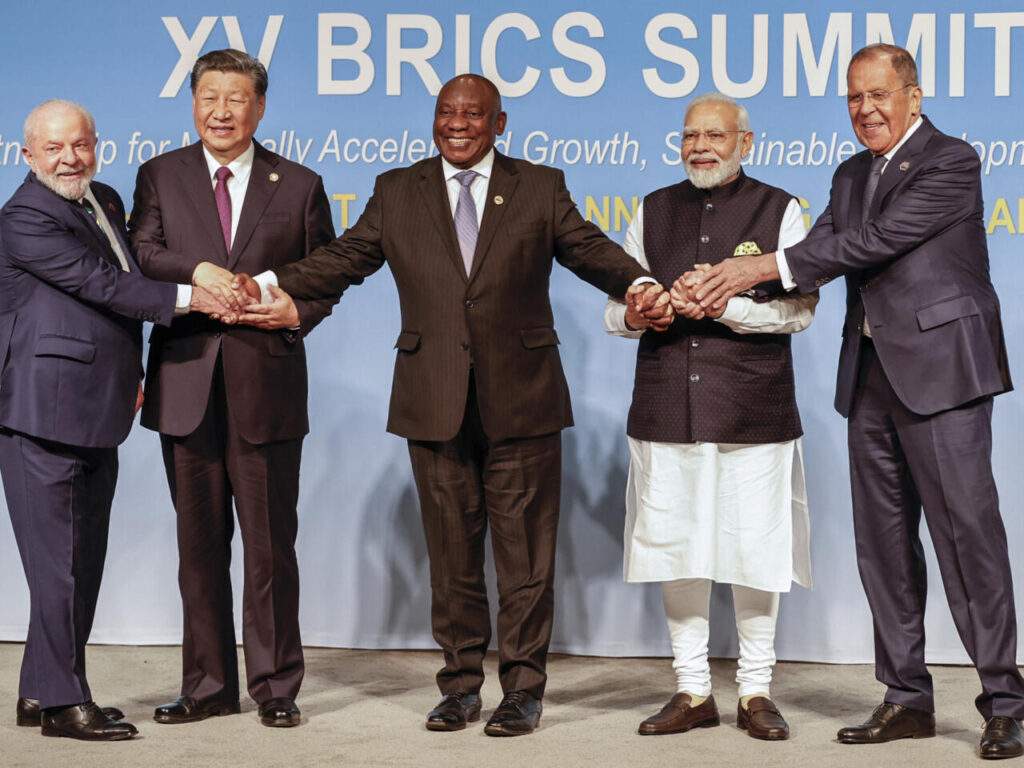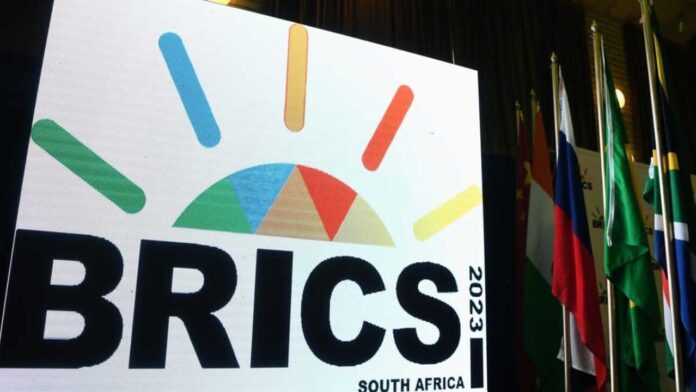What is BRICS
BRICS is an acronym for Brazil, Russia, India, China and South Africa, five emerging economies that have formed a political and economic alliance to challenge the dominance of the Western-led world order. The group was originally known as BRIC, until South Africa joined in 2010. Since then, the BRICS have held annual summits to discuss various issues of common interest, such as trade, investment, development, security, health and climate change.

The latest summit, the 15th one, took place in Johannesburg, South Africa from August 22 to 24, 2023. It was the first in-person summit to be held after four years, the last three having been held under the chairmanship of Russia, India and China in virtual format on account of the Covid-19 pandemic. The theme of the summit was “BRICS@15: Intra-BRICS Cooperation for Continuity, Consolidation and Consensus”. The summit was attended by the leaders of the five member states, as well as invited guests from 67 countries, including Argentina, Egypt, Ethiopia, Iran, Saudi Arabia and the United Arab Emirates.
The main outcomes of the summit were:
– The announcement of the expansion of BRICS to include six new members: Argentina, Egypt, Ethiopia, Iran, Saudi Arabia and the United Arab Emirates. This is the first expansion of the bloc since its inception in 2006. The new members will officially join on January 1, 2024.
– The endorsement of the BRICS Business Council Annual Report 2022/2023, which highlighted the achievements and recommendations of the nine sectoral-focused working groups: agribusiness; digital economy; deregulation; energy and green economy; financial services; infrastructure; manufacturing; regional aviation; and skills development.
– The signing of a memorandum of understanding between the BRICS member states, the Africa Centre for Disease Control and Prevention (Africa CDC), Africa Health Business and the World Health Organization (WHO) to collaborate on pandemic prevention, preparedness and response.
– The reaffirmation of the commitment to multilateralism, international law and the central role of the United Nations in addressing global challenges. The leaders also expressed their support for a comprehensive reform of the UN Security Council to make it more representative and effective.
– The condemnation of unilateral sanctions and coercive measures that violate international law and undermine the sovereignty of states. The leaders also called for a peaceful resolution of conflicts and disputes through dialogue and diplomacy.
– The recognition of the importance of enhancing cooperation in areas such as science, technology, innovation, health, education, culture, sports and people-to-people exchanges. The leaders also welcomed the progress made in implementing various BRICS initiatives, such as the New Development Bank (NDB), the Contingent Reserve Arrangement (CRA), the BRICS Network University (NU), the BRICS Vaccine Research and Development Centre (VRDC) and the BRICS Partnership on New Industrial Revolution (PartNIR).
The summit was not without controversies, however. One of them was the participation of Russian President Vladimir Putin, who attended virtually due to an arrest warrant issued by the International Criminal Court (ICC) for war crimes during the Russian invasion of Ukraine. Another was the divergence of views among some members on issues such as de-dollarization, human rights and democracy. Despite these challenges, the BRICS leaders expressed their confidence in the future of their partnership and their determination to strengthen it further.
